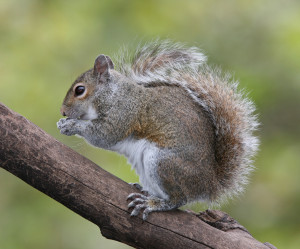
Walking or driving down the street in fall can be perilous. In my part of the world, the drivers are bad enough at all times, but from September through Thanksgiving, both drivers and pedestrians also have to contend with the falling acorns, beechnuts and other tree-born fruiting bodies falling from the sky. An acorn hitting your body is painful. An acorn hitting your car sounds like a small bomb going off. Even if those nuts don’t bounce off your head or your car, they can trip you up when you are walking, running or doing fall clean-up.
This year many reports say that the aerial bombardment is worse than usual. Why? Because it is a “mast year”, when trees produce bumper crops of acorns and other nutty detritus. Collectively these acorns and other nuts used to be called “mast”. In a “mast year” trees produce much more mast. In some agricultural societies, farmers used to turn their animals, especially omnivores like pigs, out into the forest to chow down on autumn mast. The amount of this free food increased significantly in mast years. More food for pigs meant fatter pigs and, ultimately, more food for humans. Mast years benefitted everyone.
The fascinating thing about mast years is that all the trees of the same genera—say oaks—experience mast years at the same time. Oaks and chestnuts may not be on the same mast year schedules, but all the chestnuts in a region will increase production in the same year.
What causes this? Part of it is due to reproductive cycles of species and the energy plants must expend to produce offspring. Mast years are generally followed by lighter nut production the following several years because trees can’t expend a super-abundance of energy in every reproductive cycle. In between mast years, the large number of extra nuts that don’t get eaten by squirrels and other small mammals ultimately sprout and produce future trees, which is good for the survival of various genera and species. The phenomenon is also great for those squirrels, chipmunks, mice and other animals. More food means better fertility and more young animals the following spring. It’s a “circle of life” process.
Mast years have to do with tree genetics, but they are also affected by weather. Ideal weather conditions are more likely to support mast production than bad weather conditions. Every spring, nut-bearing trees, including oaks, beeches and black walnuts produce flowers. Those flowers have to be pollinated in order to develop into seed-bearing bodies like acorns. Bad weather reduces the number and effectiveness of pollinators, leading to less mast on the ground come fall. Pollution, tree stress and other factors can also contribute.
In suburbs some homeowners—even those with lawn services–dislike the oaks, sweet gums and chestnut trees that produce “litter” every year and excess litter in mast years. They don’t have hungry farm animals to fatten up and they would rather not have to worry about the small mammals that feast on the abundant mast. It is a good idea to remember that by feeding those small mammals, you are also providing food to larger animals like the hawks that grace our neighborhoods. Even if we like tidy lawns and dislike falling nuts, we have to consider our place in the ecosystem. Raking or blowing away acorns or chestnuts is a small price to pay for sustaining life on the planet.
I think of this as I plant my spring-flowering tulips, daffodils and crocuses while all around me the squirrels are stuffing their faces with food and “planting” acorns and chestnuts. In this mast year, they will be busier than usual, and I know that next spring, I will find plenty of tiny oak and chestnut sprouts in my garden beds. The ones shooting up under the privet hedge will probably be a foot tall before I notice them and grub them out. Still, I like to think about the number of acorns that have to fall in order to produce the stately trees that provide summer shade, better air quality and full-time beauty in my neighborhood and everywhere else. As the exercise gurus say, no pain—as in the pain of a falling acorn hitting your head—no gain.
